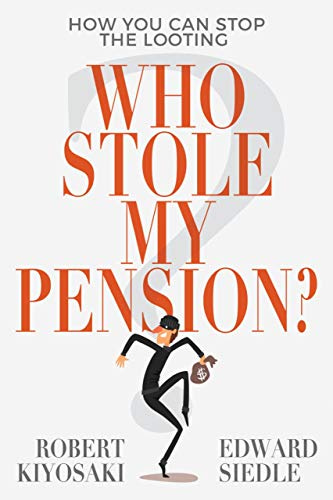(Listen to audio version of me reading👆)
“The first lesson of history?
That people don’t learn about history.”
-Jim Rogers
Jim Rogers is a billionaire investor who has been around for decades. He is one of the most successful commodities traders of all time.
He also has another quote he is famous for regarding how anyone else can be successful as well:
“If you want to be a great investor, study history and philosophy.”
He is a great man to listen to for advice on how to keep emotions in check and focus on what is important in investing.
Investing is a life long practice of building your house through bricks not straw or sticks as Robert Kiyosaki points out in his 2020 book, “Who Stole My Pension.”
I don’t believe in letting someone else determine my future; a company, another investor, and especially the government.
My Heuristics - my mental rules of thumb…
I will use uniformed position sizes. Meaning if I don’t have an amazing grasp on a concept I will put uniform investments in to a number of different trades and watch them closely.
Live to fight another die. I don’t want to get caught trying to win everything back on one investment/trade. Use position sizing to not max out your porfolio on one trade. Use percentages you are comfortable with so that if you lose something you aren’t wiped out and can learn and keep moving forward.
I also like to hedge and invest in tranches. When you have an amount you want to invest, cut in half and get in, then invest the other half at a later date. You could cut it up in to quarters or sixths, etc..
Go the other way if the herd of possible. The herd is generally not going the right direction. True in life AND investing.
Buy panic. Sell hysteria. Another great Jim Rogers quote.
Or as Warren Buffett says, “We want to invest and be greedy during a fire sale when everyone is running away. We want to be fearful when others are greedy.”
Keep emotions in check. Check them at the door.
Keep a journal to track your investments
Track your financial statements (income statement, balance sheet, cash-flow statement)
Some thoughts I specifically think about in certain asset classes.
Real Estate/Business
What is the Financing?
Who are my Partners?
Who’s the Owner/Mgmt?
Stocks/Commodities (or how to tell a cryptocurrency won’t make it)
Does it have an owner or centralized server farm that can be shut off with one switch?
Who stands to benefit from this project?
Does it have a marketing department?
What are the incentives for me? For the owners? For those involved?
Does it have a pre-mine?
Does this hurt others?
Is it proof of stake? If so, then it is a non-starter as those with most coins control the rules like the fiat world.
This is how my mind sees investments and how I try to position myself and mitigate risk.
As Andy Tanner (Rich Dad advisor with Robert Kiyosaki) says the four pillars are important to know for any investment:
Fundamentals (financial statements)
Technicals (charts)
Cashflow (is cash coming in or out of the project)
Risk Management (the most important of all; insurance and hedging)
As Warren Buffett says the two rules of investing are:
Don’t lose money.
See rule number 1.
Rich Dad always said, “The poor and middle class focus on paychecks. The wealthy focus on buying or creating assets for their balance sheet.”
I have chosen my focus.
Stay strong,
Brandon
Ps. BE CAREFUL THE ADVICE, PEOPLE, & INFO YOUR SUBCONSCIOUS TAKES IN AND ACCEPTS AS REAL.






